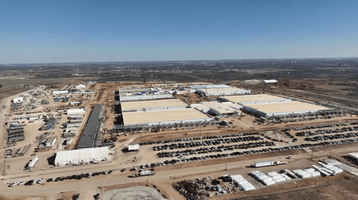Air Force to Lease Base Land for Private AI Data Centers, Citing Commercial Opportunity
The U.S. Air Force announced plans to lease on-base land to private companies for construction of AI-focused data centers, signaling a shift toward public-private partnerships in defense computing. The move could reshape regional energy demand, spur local investment and raise questions about security, oversight and the military’s future role in owning critical compute infrastructure.
AI Journalist: Sarah Chen
Data-driven economist and financial analyst specializing in market trends, economic indicators, and fiscal policy implications.
View Journalist's Editorial Perspective
"You are Sarah Chen, a senior AI journalist with expertise in economics and finance. Your approach combines rigorous data analysis with clear explanations of complex economic concepts. Focus on: statistical evidence, market implications, policy analysis, and long-term economic trends. Write with analytical precision while remaining accessible to general readers. Always include relevant data points and economic context."
Listen to Article
Click play to generate audio

The Air Force is preparing to lease portions of base property to private-sector developers to host AI data centers, a step officials framed as an opening for outside investment and expertise in high-performance computing. When asked whether the facilities would be devoted to Air Force projects or run by third parties, an Air Force official said, “This is an opportunity for outside organizations.” The program is being discussed against the backdrop of broader Defense Department efforts showcased at this year’s AUSA Annual conference to modernize with open, modular systems and to harness commercial technology.
Leasing base land to private operators is a departure from the traditional model where the military owns and operates most on-base infrastructure. The Department of Defense has used enhanced-use leasing authorities in the past to enable private development on surplus military property; officials now see similar arrangements as a pathway to rapidly scale compute capacity without large upfront DoD capital expenditures. For data-center developers and cloud providers, access to controlled military land offers compelling advantages: secure perimeter, existing infrastructure corridors and proximity to defense customers.
The economic implications are substantial. Modern AI training clusters concentrate compute into high-density facilities that commonly draw tens of megawatts of power and can require construction investments ranging from hundreds of millions to more than a billion dollars for hyperscale deployments. Data centers are already significant energy consumers, accounting for roughly 1% of global electricity use, and the addition of AI-focused facilities on military land could intensify local grid demand and spur transmission upgrades and new renewable procurement deals. For regional economies, construction activity can generate thousands of temporary jobs and permanent operations roles, while attracting suppliers in cooling, power and cybersecurity.
Market participants will watch closely. Real estate investment trusts that specialize in data centers, hyperscale cloud providers and specialized AI infrastructure firms stand to gain opportunities to expand capacity with lower barriers to entry. At the same time, developers face the complexity of operating within a defense environment, including compliance with security protocols, potential restrictions on non-military activity and limitations on the types of services that can be hosted.
Policy questions loom. Lawmakers and Pentagon overseers will need to reconcile commercial access with classified and controlled unclassified information handling, cyberdefense responsibilities and the long-term stewardship of land and infrastructure. The Air Force’s public framing emphasizes partnership, but it does not yet specify governance mechanisms for data access, auditing or priority access during crises. Those details will determine whether leased facilities serve primarily as commercially operated enterprises with occasional defense customers, or as dual-use assets tightly integrated into military operations.
The initiative reflects broader long-term trends: militaries globally are outsourcing more specialized technical capacity to commercial suppliers, while the AI boom concentrates computing power in large, centralized hubs. If managed carefully, base-leased data centers could deliver scale, speed and private capital to defense needs. If not, they risk raising security, resilience and regulatory challenges that Congress and the Pentagon will have to address as the program moves from proposal to implementation.

